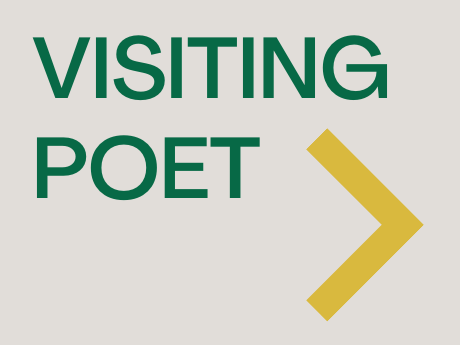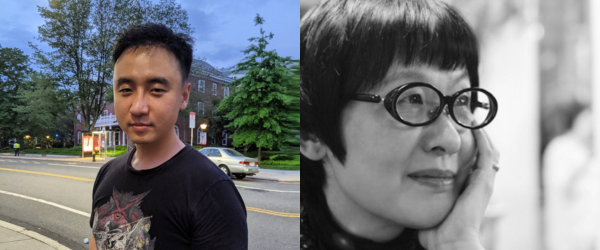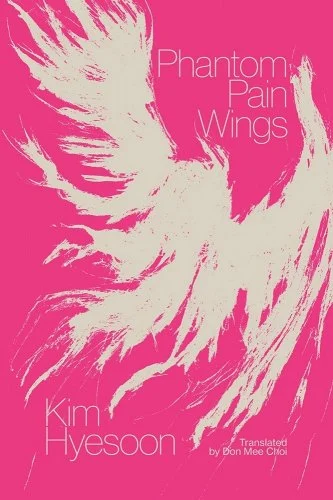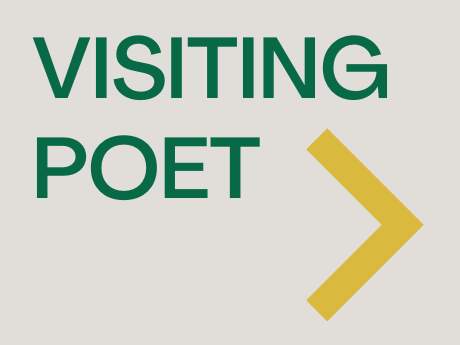Visiting Poet
Visiting Poet: Jack Jung on Kim Hyesoon

Three Poems
Bird's Poetry Book
This book is not really a book
It’s an I-do-bird sequence
a record of the sequence
When I take off my shoes, stand on the railing
and spread my arms with eyes closed
feathers poke out of my sleeves
Bird-cries-out-from-me-day record
I-do-bird-day record
as I caress bird’s cheeks
Air is saturated with wounds
Beneath the wounds matted over me
bird’s cheekbones are viciously pointed
yet its bones crack easily when gripped
The birth sequence of such a tiny bird
Poetry ignores
the I-do-bird-woman sequence
Woman-is-dying-but-bird-is-getting-bigger sequence
She says, The pain is killing me
When my hands are tied and my skirt rips like wings
I can finally fly
I was always able to fly like this
Suddenly she lifts her feet
Translation-of-a-certain-bird’s-chirping record
of I-do-bird-below-the-railing
sequence
Night’s carcass bloats
Waves of tormented spirits
One bird
All the nights of the world
Bird-carrying-the-night’s-nippleover-
the-pointed-as-an-awl-Mount-Everest sequence
Bird with dark eyes has shrunken
Bird has shrunken enough to be cupped in my hands
Bird mumbles something incomprehensible even when my lips touch its
beak
Bird’s tongue is as delicate as a bud
as thin as the tongue of a fetus
The tiny bird’s
kicks-off-the-blanket-kicks-my-bodykicks-
the-dirt-and-exits sequence
I end up doing I-do-bird even if I resist doing it
I end up saying this is not a book of poems but a bird
I’ll overcome this existence
Finally I’ll be free of it
Bird-flies-out-of-water-shaking-its-wings poetry book
Now scribbles of Time’s footsteps appear in the book
Scribbles left by skinny bird legs
made with the world’s heaviest pencil
Perhaps there’s a will left in the scribbles
This book is about the realization of
I-thought-bird-was-part-of-me-but-I-was-part-of-bird sequence
It’s a delayed record of such a sequence
The promise of being freed from the book and
being able to step off the paper-thin railing
if I write everything down
It’s the delayed record of my regret
Bird's Repetition
All the stories bird tells perched on the treetop are about me
Nothing about the rumors of my lies, my thefts and such but
something ordinary like how I was born and died
Bird talks only about me even when I tell it to stop or change the topic
It’s always the same story like the sound of the high heels of the woman,
walking around in the same pair all her life
This is why I have a bird that I want to break
Like a poet who buys a ream of A4 paper
and crumples the sheets one by one and tosses them
I have a bird I want to break
When I crumple up my poems that are like
the family members inside a mirror in front of me
I can hear the stories of fluttering birds
“You were born and died”
Then I say, You scissormouths
and go buy a paper shredder
to shred every poetry book of mine
But later, when I opened up the shredder
a flock of birds was sitting inside, talking about me as if reading line by line
Moreover, each bird had a different face
and the hens talked about me even while sitting on their eggs
They didn’t care to fly off
Instead, they clustered under the peanut tree and talked about me
like peanuts under the ground
So, I said to them, enough of telling the same old story of how I was born
and died
How about something else?
For instance, how about the fact that I always wear the same high heels
to work and back
but when I’m under the same tree at the same park
I always dance a waltz
And do several movements of embracing the moon
But they replied,
You were born inside bird
Not opposite of that
You died inside bird
Not opposite of that
You were born and died
Don’t Fly in This Country
Daddy, I was born here, yet I’m told to escape
I’ve lived here all my life, but I’m not allowed anymore
This nation is out looking for me
Borders are sealed
I’m told to get out
All of its territory rejects my footprint
They all know my face
They’ll kill me if I breathe
I’m not allowed to cry
Daddy, I escape into the water
My body floats when I close my eyes
Nothing but water
Daddy, Look! I get even thirstier under water, that’s why my body floats up
Look, I can even lie down on walls
I can also walk on ceilings
I roll up my body and fly
Books fall from my shelves
My dishes fly away
My house leans sideways
Time drags its feet slowly along where water pressure is high
A thousand-year-old turtle crawls out from under my bed
Here, bird walks with its ten fingers over its face
worried that someone might recognize it and point a finger at it
worried that its body might float ridiculously in front of people
Daddy, When I lower my head and quietly fly down to the bottom of the
building
my teacher sitting at the bottom of the ocean says,
It’s so difficult to die
Go up toward the light, go higher
Push up your butt!
Sun sits on top of sleep like a yellow houseboat
and a lonely diver’s tears well up from his chest
You are bound to lose your shoes in water
You are bound to lose your cell phone
You are bound to lose your passport
Right now, I’m ill up in the air
I’m deathly ill, unbearably thirsty
I want to open my eyes
but my nation says, Wait till I catch you!
All of its territory rejects my feet
Translated from the Korean by Don Mee Choi.
“Bird’s Poetry Book,” “Bird’s Repetition,” and “Don't Fly in This Country” from Phantom Pain Wings by Kim Hyesoon, translated by Don Mee Choi. Copyright © 2019 by Kim Hyesoon. Translation and copyright © 2023 by Don Mee Choi. Reprinted with the permission of New Directions Publishing Corp. All rights reserved.
Mirrors of Ruin: Kim Hyesoon, Don Mee Choi, and the Reflection of Twoness in Poetry and Translation
Poet Kim Hyesoon’s work is a mesmerizing amalgamation of ghostly essence, vivid imagination, and profound interpretation of death, showcasing the world filled with unnerving devastations, resistances, and dreams. Her visions transcend mere observations, serving as transformative mirrors reflecting her experiences and the encompassing world. Kim's are lines of personal lamentations sung against the backdrop of the restrictive societal structures of South Korea and the expansive, global world she has endured.
Her poetry envelops the reader in a sensory overflow, granting a glimpse into harsh realities both individual and collective, accessible even to those unacquainted with Korean culture and history: the enduring scars of the Korean War, the eras of U.S.-supported military dictatorships, ongoing inequities inflicted on women, marginalization of divergent gender and sexual identities, and the battle for human dignity in a time dominated by the caprices of capital and unrestrained technological dystopia.
Kim Hyesoon’s rich, complex metaphors and imagery unfold like a pair of magnificent wings, transforming anguish and oppression into a vivacious, mesmerizing flight, leading readers into an intricate dance with shadows, inviting them to witness the metamorphosis of the soul. Her words, ultimately, craft the portrait of a world unbounded by time and space, where the ephemeral and eternal coalesce, culminating in a haunting symphony, oscillating between realms seen and unseen, known and unknown.
And her translator, Poet Don Mee Choi, plays an essential role in rendering Kim's visions in English. Together, they unravel a layered perspective of South Korea’s haunting history and its place in the world, challenging conventional perceptions of language and reality.
Don Mee Choi, acclaimed for translating Korean poetry and championing experimental poetics, interprets Kim’s works and brings forth Kim’s unique self throughout many volumes of poetry in translation, including the latest titled Phantom Pain Wings (New Directions, 2023).
Kim Hyesoon’s Phantom Pain Wings is arguably a 'I Do Bird’ collection: “I-do-bird” is a phrase that appears in the very first poem of the book which says, “This book is not really a book / It’s an I-do-bird sequence.” It is Don Mee’s translation of Kim Hyesoon’s Korean line “새하는” into English. What kind of movement does 'I Do Bird' imply? The juxtaposition of the noun 'bird' and the predicate 'to do,' denoting action or effect, perhaps feels strange at first. Sentences like 'a bird does something,' where the bird is the subject, or 'become a bird' or even 'how to do a bird' would be considered more natural by many English speakers. However, in the Korean original, “새하는,” it is also not clear whether the 'bird' is the subject or the object. There is an ambiguity, where the position of 'bird' could either be subject or object or both. Kim Hyesoon’s precisely crafted phrase makes this sentence break down the rigid grammatical boundaries between subject and object, agent and entity. This powerful and captivating 'performative sentence,' which erases the hierarchy between human and animal or subject and object, is the driving mechanism that penetrates Phantom Pain Wings.
In the phrase “I Do Bird," we also witness Don Mee Choi’s translation methodology in action as it captures the rhythm, the intrigue, and the utter peculiarity of the original. Its catchy strangeness is almost revolutionary (dare I say, there are echoes of ‘Just Do it’ here) — challenging the conventions of the English language. Even though “I” and “Bird” seems to have returned subject and object to their places, the positioning of “do” in between the two disrupts that relationship much like in the original, while maintaining that mercurial three-syllable rhythm: “새하는”, “I-do-bird.” As Joyelle McSweeney said in her recent review of Phantom Pain Wings, “ “I-do-bird” indicates directions of flight that are both sublime and bodily, physically inside and at the same time spatially or spiritually beyond.”
I also believe that in these kind of translations Choi seeks to peel off the English language. By "peeling off ", I mean that a translation reenacts the quirks of the original, without trying to streamline or simplify. This technique renews the target language, in this case English, and brings forth a fresh perspective, free from the corruptions imposed by dominant powers.
I say “the corruptions imposed by dominant powers” because Don Mee Choi's perspective on translation also speaks to the deeper political implications of language and identity, which she wrote about in her pamphlet “Translation is a Mode = Translation is an Anti-Colonial Mode”. By bringing forth the idea of language corruption and American imperialism's effects on Korea, Don Mee explores the complex dynamics between dominant and marginalized cultures. The American influence, once an oppressive force, is now intricately linked with Korea's linguistic and cultural identity.
Thus, in translating Korean poetry into English, the act goes beyond merely crossing linguistic borders. It is about redefining those borders, understanding the shared histories, and witnessing how English and Korean now mirror each other, opens deep gaping holes on each other’s surfaces.
Kim Hyesoon and Don Mee Choi, embracing the twoness of mirrors facing one another, shows the art of translation as an aggregate, a collective enunciation. Kim and Choi’s works are not about crossing borders or defining national literature; instead, they are reflections of collective, intertwined destinies and experiences, mirrors revealing the ruin within.
And sometimes, when we confront these reflections, we understand our collective self, our shared ruins, and the profound truths they reveal. Through this mirrored reflection of twoness, Kim Hyesoon and Don Mee Choi invite readers to traverse the realms of devastation and transformation, to see the world and themselves through the facing mirrors of poetry and translation.
So, as we delve deeper into this poetic realm, let's not just attempt to decipher or relate. Let's experience it, live it, feel it. Let the bird fly into the gaping holes on the surfaces of mirrors facing one another. As Kim Hyesoon and Don Mee suggest, let's not just look at the bird; let's "do bird."
*
These remarks were adapted from an introduction at to the T.S. Eliot Memorial Reading with Kim Hyesoon with Don Mee Choi for Harvard University's Woodbery Poetry Room on October 2, 2023.

Jack Jung studied at the Iowa Writers’ Workshop, where he was a Truman Capote Fellow. He is a co-translator of Yi Sang: Selected Works (Wave Books 2020), the winner of 2021 MLA Prize for a Translation of Literary Work. His poetry and translations have been published in Washington Square Review, Bennington Review, BOMB Magazine, The Paris Review, Poetry Magazine, Chicago Review, Guernica, The Margins, Denver Quarterly, Poetry Northwest, and elsewhere. He teaches at Davidson College.
Kim Hyesoon, one of the most influential contemporary poets in South Korea, is the author of several books of poetry and essays. She has received many awards for her poetry, including the 2019 International Griffin Poetry Prize for Autobiography of Death (New Directions, 2018) and the prestigious Samsung Ho-Am Prize in 2022. Besides English, Kim’s work has been translated into Chinese, Danish, French, German, Japanese, Spanish, and Swedish


